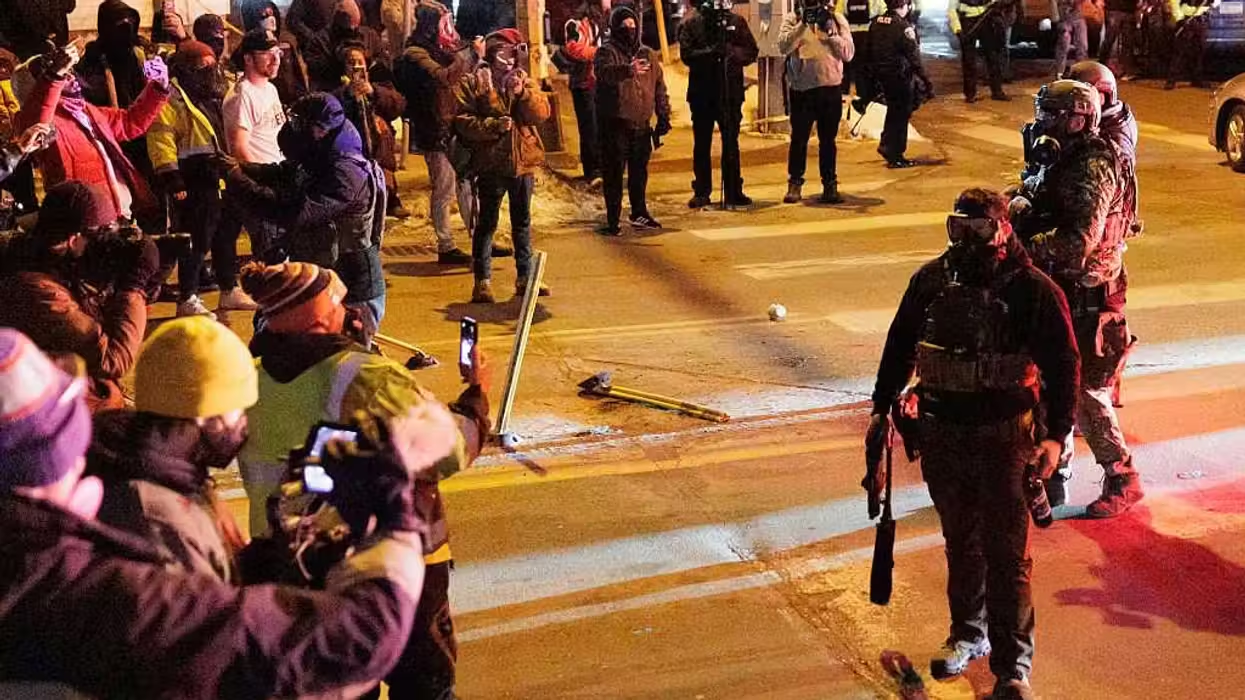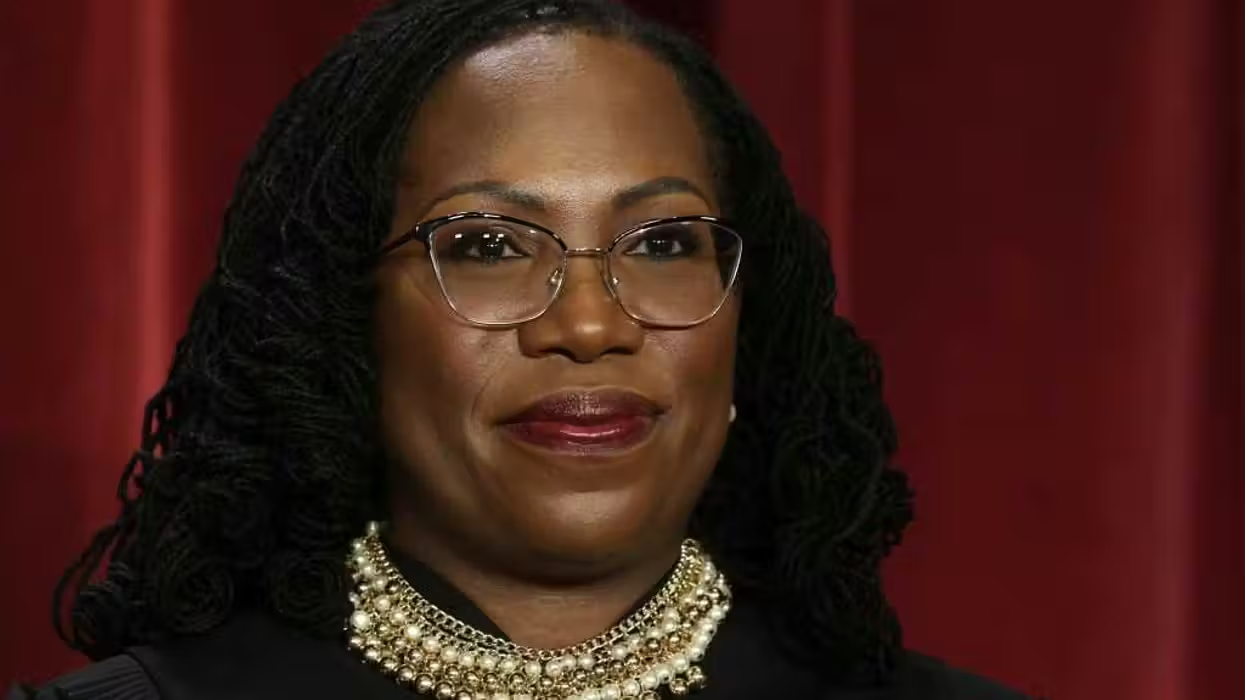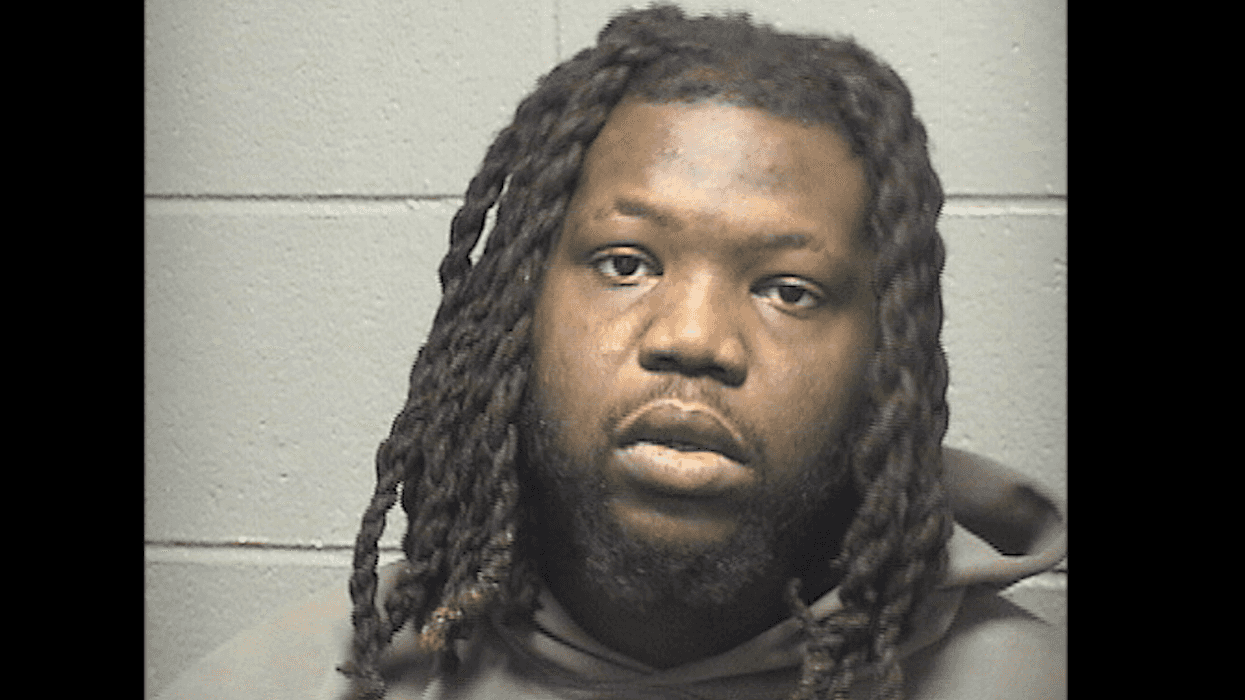
© 2026 Blaze Media LLC. All rights reserved.
Ohio College Prohibits Student From Peacefully Distributing Anti-Birth Control Literature on Campus
April 06, 2011
"Thankfully the Constitution does not recognize a ‘right not to be offended.'" But--alas--colleges do.
According to FIRE, an organization dedicated to upholding civil liberties in higher education, a student at Ohio's Sinclair Community College was banned from handing out literature about birth control, abortion, and breast cancer to students on campus.
It all began during Breast Cancer Awareness Month when student Ethel Borel-Donohue distributed about 15 flyers to a handful of students following her Probate Law I class. Borel-Donohue was in a paralegal-prep program at Sinclair Community College. The flyers she distributed, which you can see here, discussed the possible link between taking birth control/having an abortion and getting breast cancer. In that sense, the flyers caution against such forms of birth control and can be interpreted to be pro-life.
But apparently that "offended" at least one student who had previously had an abortion. As a result, Borel-Donohue was called into the office of Paralegal Program Chair who told her she had "no right" to be distributing such pamphlets.
Does the Constitution protect the right to "not be offended"? No. But college campuses seem to.
Borel-Donohue was summoned to the office of Judge Michael Brigner, Paralegal Program Chair, and they met on November 2, according to Borel-Donohue's written account. Brigner reportedly stated that a student had complained to him about being "offended by the material in the brochures." Brigner then told her she "had no right to hand out any materials to students in the classroom." On January 4, 2011, Borel-Donohue asked Brigner to verify the conversation, but he refused to correct her account, which he merely said was "not accurate" in a reply the same day.
Here is Borel-Donohue's account of what happened, which she wrote in a letter to Brigner:
I arrived at your office at the agreed upon time and once I was seated in your office, you reached into your briefcase and pulled out two brochures and said that these were the reason you had called me into your office. One of the brochures was on the link between abortion and breast cancer and the other on the link between oral contraceptives and breast cancer.You said that a student (whose name you kept anonymous) had come to you to complain that I had given the brochures to her and that she told you she had had an abortion and was offended by the material in the brochures. I informed you that indeed I had handed some of those brochures out to some of my classmates after class one day during Breast Cancer Awareness Month(October), for which there was even a handmade poster on the wall of the classroom made by students in the Paralegal Club.
You told me that the student had told you that I had left the brochure on her desk and so she was not able to tell me in person that she did not want the brochure. You then told me that I had no right to hand out any materials to students in the classroom. You told me that the classroom belonged to the professor, not the students. You told me I could have handed the materials out to students in the hallways, but not in the classroom - not even after or before class when I would obviously not be disrupting any class.
I told you I had read the rules of the College and saw that students are not allowed to put materials on people's cars in the college parking lot, but nowhere did I read that students could not give to their classmates materials after or before class in the classroom and that I did not want to just give up my right to do so if I indeed do have that right.
Brigner tersely responded that her "letter is not accurate."
Until Brigner corrects Borel-Donohue's account, I'm left to reason, as FIRE President Greg Lukianoff does, that "The right to distribute literature about controversial topics is one of Americans' most hallowed rights. If someone's claim to be offended by speech were all it took to overrule the First Amendment, we would all be reduced to silence. Thankfully the Constitution does not recognize a ‘right not to be offended.'"
While the college's Student Handbook notes that the distribution of any materials on Sinclair property is prohibited--with the exception of those registered (read: pre-approved?) materials distributed by college-recognized student groups--Borel-Donohue observes:
I told you I had read the rules of the College and saw that students are not allowed to put materials on people's cars in the college parking lot, but nowhere did I read that students could not give to their classmates materials after or before class in the classroom and that I did not want to just give up my right to do so if I indeed do have that right. You told me I should talk with someone at Student Activities (or Student Affairs) and they would verify that I do not have the right to give to other students any materials within classroom walls.When I informed you that one of my paralegal professors had, while in the classroom during a previous quarter, put in a plug for one of her pet clubs which could easily be construed as controversial or offensive to some students and I asked if that was alright for teachers to do, you said,"No, it was not alright for the teacher to have done this, but" you continued, "if you want to complain, you would need to make a formal written complaint." You did not tell me what consequences you would take if I were to give out any materials within the classroom walls to classmates after or before class again.
FIRE has asked the college to update its student policies to conform to the First Amendment.
Want to leave a tip?
We answer to you. Help keep our content free of advertisers and big tech censorship by leaving a tip today.
Want to join the conversation?
Already a subscriber?
more stories
Sign up for the Blaze newsletter
By signing up, you agree to our Privacy Policy and Terms of Use, and agree to receive content that may sometimes include advertisements. You may opt out at any time.
Related Content
© 2026 Blaze Media LLC. All rights reserved.
Get the stories that matter most delivered directly to your inbox.
By signing up, you agree to our Privacy Policy and Terms of Use, and agree to receive content that may sometimes include advertisements. You may opt out at any time.







